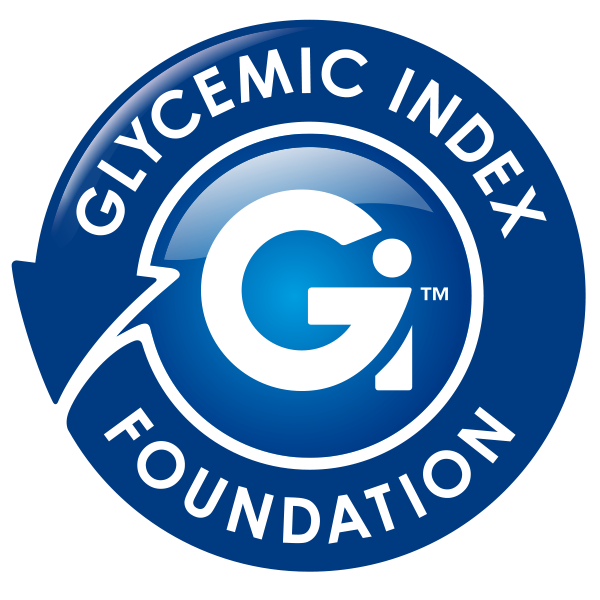A new school year approaches us, and we all want our little ones to do their best. However, did you know that the glycemic index value (GI) of breakfast cereal makes all the difference to their cognitive performance?
What is the Glycemic Index?
The Glycemic Index (GI) is a tool that measures how carbohydrates affect blood glucose levels. It then ranks the quality of carbohydrate based on this score. Carbohydrates are an essential part of our diet providing fuel for the brain, most other organs, and muscles during physical activity.
However, not all carbohydrate foods are equal. High GI carbohydrates cause blood sugar levels to spike and then crash, whereas low GI foods are digested and absorbed more slowly. This slow release of glucose into the bloodstream is proven to be much more beneficial for the body from improved energy levels to management of type 2 diabetes to weight loss.
Low GI and Cognitive Performance
One study iexamined how the GI of different breakfast cereals affects the attention and memory of children aged 6-11 years. A series of computerised tests on attention and memory were conducted including one before breakfast and three times after breakfast, at hourly intervals. What they found was that children’s performance declined throughout the morning. However, this decline was significantly reduced if they consumed a low GI breakfast cereal compared with a high GI breakfast cereal on measures of accuracy of attention and secondary memory.
What if My Child Skips Breakfast?
If your child does not eat breakfast, then you are not alone. Breakfast is the most frequently skipped meal with 20–30% of children and adolescents in the developed world skipping breakfast. Unfortunately, research has found that skipping breakfast has a negative impact on brain activity and associated cognitive, behavioural, and academic outcomes. ii
‘Breaking the fast’ is particularly important for our little ones who have higher sleep demands and therefore depleted glycogen stores when they wake in the morning. Children also have a high brain glucose metabolism with it being twice as high in children aged 4-10 years compared with adults iii. So, feeding the brain with a continuous supply of glucose from a quality breakfast is the best start our children can have to the day.
If You’re a Parent and Skip Breakfast, Read On….
If you are struggling with your child eating breakfast, consider your own breakfast habits. One study iv found that children with mothers who skipped breakfast were two-three times more likely to skip breakfast compared to children with mothers who ate breakfast. Furthermore, the chances of children skipping breakfast was even higher when both parents skipped breakfast. v
Supercharge Your Morning with these Low GI Certified Breakfast Products:
- Low GI breakfast cereals: Delicious Muesli such as Uncle Tobys Goodness Bowl Low Sugar Muesli Berries & Coconut or Morning Sun® Natural Style Muesli – Apricot & Almond or Crunchy Granola such as Sanitarium Low GI Granola – Cocoa & Roasted Hazelnut
- Low GI Bread: Toast on the go using Low GI breads such as Bürgen® Cholesterol Lowering Whole Grain & Oats or Helga’s™ Lower Carb Wholemeal & Seeds Bread. Add some protein such as egg to a Mission® Low GI + Protein Wraps for a quick, filling breakfast.
- Low GI toppings: Drizzle your morning porridge with Whole Earth Blue Agave – Raw Blue or Capilano LOW GI 100% Australian Pure Honey
- Low GI Breakfast Bars: Grab and go with Uncle Tobys Breakfast Bakes Apple and Cinnamon
Get the family involved in the kitchen with these easy to prepare, Low GI Breakfast recipes:
- Low GI cereal such as Low GI Granola Natural Muesli or Quinoa Porridge served with milk of your choice or Greek yoghurt.
- Savoury, egg-based breakfast such Cheesy Baked Eggs or prepare Veggie Protein Loaf in advance for those on the go.
- For a ‘berrylicious’ breakfast try Strawberry Breakfast Trifle
- Can’t stomach breakfast? Try these liquid brekkie combos: Breakfast Boost or Spiced Blueberry Smoothie
- Try this healthy muffin recipe or banana bread recipe on the weekend and freeze. All you need to do is microwave one for 30 seconds or thaw overnight. A grab and go healthy breakfast!
By Rebecca McPhee, Accredited Practising Dietitian (APD) & Health Coach Consultant.
References
- iJeanet Ingwersen, Margaret Anne Defeyter, David O. Kennedy, Keith A. Wesnes, Andrew B. Scholey. A low glycaemic index breakfast cereal preferentially prevents children’s cognitive performance from declining throughout the morning. Appetite. Volume 49, Issue 1, July 2007, Pages 240-244.
- ii Katie Adolphus,* Clare L. Lawton, and Louise Dye. The effects of breakfast on behavior and academic performance in children and adolescents. Front Hum Neurosci. 2013; 7: 425.
- iii Marta Cacciatore, Eleonora Agata Grasso, Roberta Tripodi, and Francesco Chiarell. Impact of glucose metabolism on the developing brain. Front Endocrinol (Lausanne). 2022; 13: 1047545.
- ivOkada C, Tabuchi T, Iso H. Association between skipping breakfast in parents and children and childhood overweight/obesity among children: a nationwide 10.5-year prospective study in Japan. International Journal of Obesity 2018; 42:1724-32.


